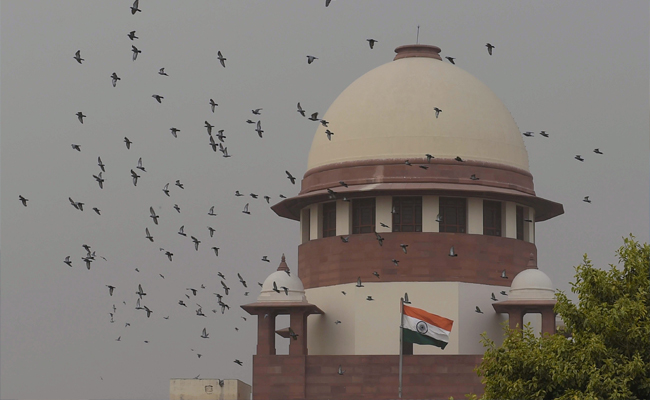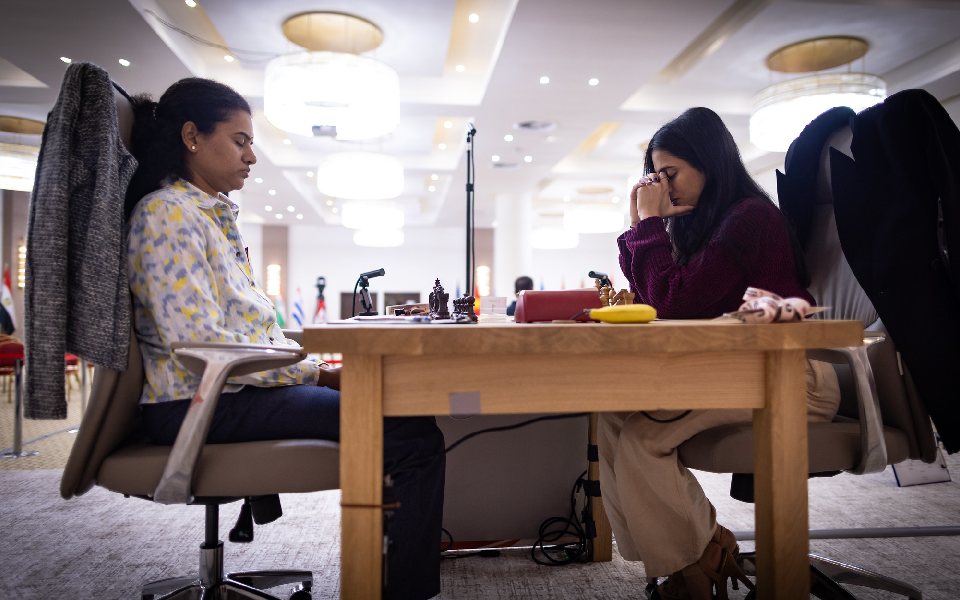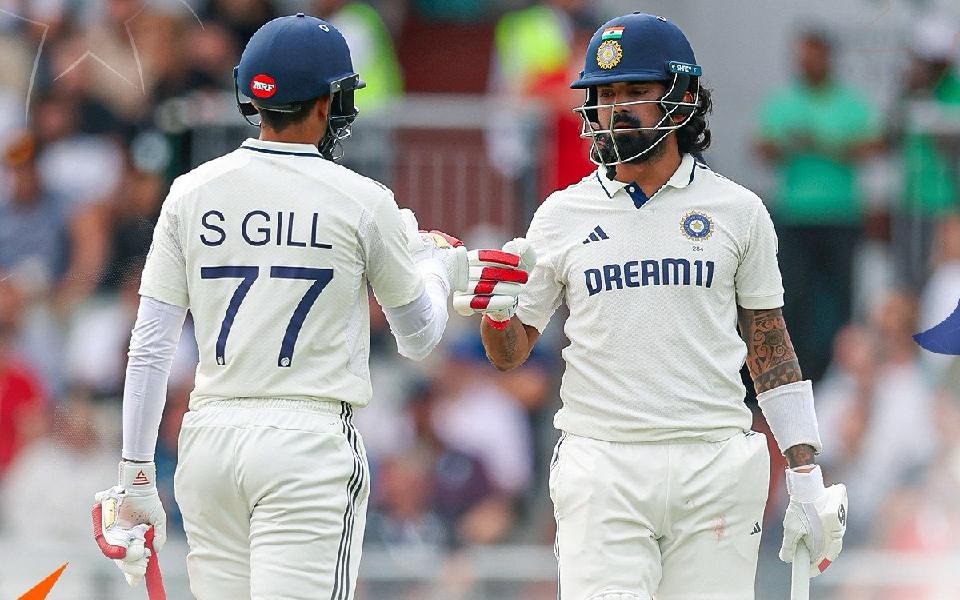New Delhi (PTI): The Supreme Court on Thursday allowed the Election Commission of India to continue with its Special Intensive Revision (SIR) of electoral rolls in Bihar calling it a "constitutional mandate".
A bench of Justices Sudhanshu Dhulia and Joymalya Bagchi, however, questioned the timing of the exercise besides offering its prima facie view that Aadhaar card, voter ID card and ration cards could be considered during the SIR in Bihar.
"We are of the prima facie view that Aadhaar cards, Voted ID cards and the Ration cards be allowed in the special intensive revision of electoral rolls,” it said.
Noting that none of the petitioners, including leaders of 10 opposition parties, prayed for an interim stay of the poll panel’s exercise, the bench sought response on the batch of petitions and posted the hearing on July 28.
The ECI, the bench said, should file a counter affidavit to the petitions by July 21 and rejoinders should be filed by July 28.
The bench said it was not doubting the credentials and sincerity of the election commission in doing the exercise which was a constitutional mandate but said the timing of the process were raising doubts.
"We are not doubting your sincerity but there are perceptions. We are not thinking of stopping you because it is a constitutional mandate," the bench told senior advocate Rakesh Dwivedi, appearing for the poll panel.
Dwivedi said 60 per cent of voters had verified their credentials and assured the court none of the voter’s name will be removed from the electoral rolls, without giving them a hearing.
"We cannot stop a constitutional body from doing what it is supposed to do. Simultaneously, we will not let them do what they are not supposed to do,” the bench said.
Earlier in the day, the bench questioned the poll panel on the timing of the SIR drive in poll-bound Bihar saying it went to the "root of democracy and power to vote" while rejecting the argument that the poll panel did not have any power to carry it out.
The ECI also justified the exercise and said Aadhaar wasn't a "proof of citizenship".
The bench questioned Dwivedi over the exclusion of Aadhaar card in the SIR drive in Bihar and said the ECI had nothing to do with citizenship of a person and it was the Ministry of Home Affairs' domain.
Dwivedi responded while referring to Article 326 of the Constitution and said every voter has to be an Indian citizen and "Aadhaar card is not proof of citizenship".
Justice Dhulia said, "If you are to check citizenship under SIR of electoral rolls in Bihar, then you should have acted early; it is a bit late."
The bench, in the meantime, rejected the submission of the petitioners’ counsel that the ECI did not have power to conduct any such exercise in Bihar for it was mandated under the Constitution and the last such exercise happened in 2003.
While referring to the petitioners' contentions, the bench said the ECI had to answer three questions as the SIR exercise in Bihar went to "root of democracy and power to vote".
The questions of the petitioners, including political parties and their leaders aside from civil society members and organisations, deal with the ECI's power to conduct such an exercise and its timing.
Dwivedi said with passage of time, electoral rolls need to be revised to look into inclusion or exclusion of voter names with the SIR being the one exercise to do it.
He asked if the ECI did not have the power to revise the electoral roll then who did.
The poll panel, however, assured the top court of not leaving out anyone from the voter list without an opportunity to be heard.
At the outset, senior advocate Gopal Sankaranarayanan, appearing for NGO 'Association for Democratic Reforms', said the revision of electoral rolls can be permitted under the Representation of People Act.
The entire SIR will cover around 7.9 crore citizens, he said, and even the voter ID and Aadhaar cards are not being considered.
Over 10 petitions have been filed in the SC, including one by NGO 'Association for Democratic Reforms', the lead petitioner.
RJD MP Manoj Jha and Trinamool Congress MP Mahua Moitra, Congress' K C Venugopal, NCP (SP) leader Supriya Sule, CPI leader D Raja, Samajwadi Party's Harinder Singh Malik, Shiv Sena (UBT) leader Arvind Sawant, JMM's Sarfraz Ahmed and Dipankar Bhattacharya of CPI (ML) have also moved the top court, seeking direction for quashing the EC order.
Let the Truth be known. If you read VB and like VB, please be a VB Supporter and Help us deliver the Truth to one and all.
Batumi (Georgia), Jul 26 (PTI): Young Indian International Master Divya Deshmukh held her nerves to hold stalwart Koneru Humpy to a draw in game 1 of the FIDE Women's World Cup final, with both players having their share of opportunities to take the lead here on Saturday.
The draw with black means Humpy, the two-time World Rapid champion, holds a slight edge going in the second and final game under the classical chess rules in the two-game mini-match, and should the deadlock continue, games of shorter duration will be played to determine the winner.
Humpy employed the Queen's gambit accepted as black and it turned out to be a pretty fascinating game right out of the opening as Divya, 19, came up with a piece sacrifice early to deny the black king the right to castle.
Humpy was the first to err and, according to computers, Divya had things under control on the 14th move. However in her bid to recover the extra material, the Nagpur girl, who has secured a place in the Candidates tournament with her sterling performance here, missed a promising continuation.
What followed the exchange of all minor pieces and the ensuing queen and rook endgame gave enough counter play to both players. The game was eventually drawn after Humpy sacrificed her rook to force perpetual checks.
"The game saw an extremely sharp battle with the game ending in a draw in 41 moves. On move 7, Divya made her aggressive intentions clear by offering another pawn,
which looked like home preparation. Humpy made a practical decision of refraining from taking the pawn and a balanced position was reached by move 10 by white," said Grandmaster Pravin Thipsay, an Arjuna awardee and the first Indian to get a chess Grandmaster norm.
"However, instead of developing the undeveloped Knight, Humpy retreated the centralised Knight on move 10, giving huge positional advantage to Divya. Divya could have gained huge positional advantage on the 12th move by moving a rook. However, she chose to play for King side attack by sacrificing a piece instead.
"Humpy, too, erred at this stage and instead of moving the King to Queen side, moved it to the King side. Divya, on move 14, could have obtained a crushing attack by threatening a mate by developing her Queen. Instead she chose to exchange a pair of Bishops first, which enabled Humpy to defend her King by returning the piece," said Thipsay.
"Players thus reached a balanced Queen and two Rooks ending. Divya continued to play ambitiously and tried to attack Humpy’s King but the latter defended accurately and the game was drawn in 41 moves by perpetual check," he added.
In the play-off for the third place, Chinese players Zhongyi Tan, the former women's world champion and top seed Lei Tingjie also decided to split points out of a Queen’s gambit declined game.
The opening raised visions of a close contest between the two but having been knocked out of title race in the previous round, none of them wanted to take any huge risk. It was still a middle game when the players shook hands.
With the top two positions sealed for the Indians, the berth to the next Candidates is also assigned, while the player finishing third will also get an entry to the premier event scheduled for 2026.
Results: Divya Deshmukh (Ind) drew with Koneru Humpy (Ind); Zhongyi Tan (Chn) drew with Tingjie Lei (Chn).





